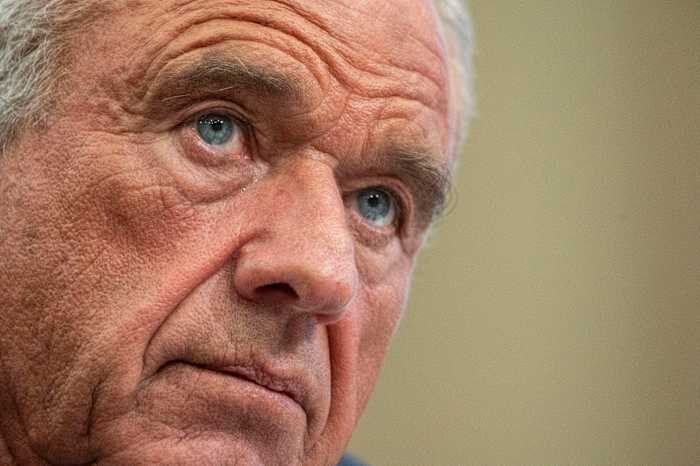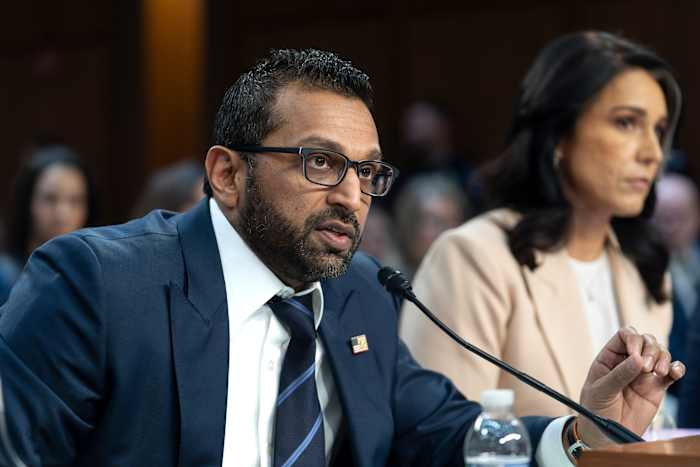Robert F. Kennedy Jr., a prominent figure in public health debates and now a significant political candidate, once assured Americans he would not radically change the nation’s vaccine system. However, under his influence, major health agencies are reportedly initiating sweeping changes. As Orlando residents watch national headlines, it’s crucial to explore how these shifts could impact our local community, especially with Florida’s unique demographics and tourism-driven economy. Here’s what you need to know about the evolving US vaccine landscape and what it might mean for Central Florida.
RFK Jr.’s Stance on Vaccines: A Controversial Legacy
Robert F. Kennedy Jr. has been a vocal critic of certain vaccine policies for years, raising concerns about safety, transparency, and government oversight. Despite his controversial reputation among medical professionals, RFK Jr. publicly pledged during his campaign not to dismantle the existing vaccine infrastructure. He emphasized the importance of maintaining access to life-saving immunizations while promising more transparency and accountability within agencies such as the Centers for Disease Control and Prevention (CDC) and the Food and Drug Administration (FDA).
Orlando’s large population of families, seniors, and tourists means that vaccine policy is not just a national issue, but a deeply local one. Parents rely on school immunization requirements, and healthcare workers depend on clear federal guidance. Any changes at the national level can ripple down to local clinics, schools, and public events in Orange County and beyond.
What Changes Are Happening in US Vaccine Policy?
Despite assurances of stability, sources inside federal agencies have reported that under RFK Jr.’s influence, several notable changes are occurring:
- Reassessment of Vaccine Approval Processes: The FDA and CDC are reviewing how vaccines are approved and recommended, with a focus on increasing transparency in clinical trial data and post-market monitoring. This could slow down the introduction of new vaccines or alter recommended schedules.
- Shifts in Funding: Federal support for certain vaccination programs is being scrutinized and, in some cases, reallocated. Programs targeting childhood immunizations, travel vaccines, and adult boosters may see funding changes that could impact availability at local clinics in Orlando.
- Public Communication Strategies: Health agencies are reworking their messaging to address vaccine hesitancy and misinformation, a particular concern in Florida where rates of some vaccine-preventable diseases have fluctuated recently.
For Orlando, where millions of visitors pass through each year and public health is tightly linked to the city’s economy, these changes could have an outsized impact—especially if altered vaccine guidelines affect tourist health requirements or school enrollment policies.
How Could These Shifts Affect Orlando’s Residents and Businesses?
Orlando’s economy is heavily dependent on tourism, hospitality, and a diverse local workforce. Changes to vaccine policy could affect:
- School Entry Requirements: Local schools may have to adapt to changing state or federal immunization guidelines, potentially complicating enrollment for families.
- Tourism Industry: If vaccine requirements for international or domestic travelers change, Orlando’s tourism sector could see either increased demand or new challenges in keeping visitors healthy and safe.
- Healthcare Providers: Local clinics and hospitals might need to adjust their vaccine offerings and patient counseling, particularly if there are changes in federal recommendations or funding streams.
This uncertainty can be challenging for both residents and businesses. For example, if the approval of new vaccines slows, Orlando’s senior population—one of the largest in Florida—could have delayed access to updated flu or COVID-19 boosters. Meanwhile, parents may find themselves navigating a more complex landscape when enrolling children in school or daycare.
What Are Local Leaders and Experts Saying?
Public health officials in Orange County have expressed cautious optimism that increased transparency could benefit vaccine confidence, but warn that any disruptions in funding or guidance could complicate local health efforts. Dr. Maria Sanchez, a pediatrician in downtown Orlando, notes, “Parents are already confused by conflicting information. We need clear, science-based guidance to keep our children and community safe.”
Tourism groups are closely monitoring any federal discussions about changing entry requirements or health protocols. “Orlando thrives on keeping visitors safe and healthy,” says Visit Orlando spokesperson Kevin Brown. “Any uncertainty about vaccine policy makes it harder to plan for major events and conventions.”
Local advocacy groups are urging residents to stay informed, consult their healthcare providers, and participate in public forums as these changes unfold. The evolving landscape underscores the importance of community engagement and reliable information.
Staying Informed and Getting Involved
With vaccine policy in flux, Orlando residents can take several steps to protect their families and livelihoods:
- Stay updated on federal and state vaccine guidelines through trusted sources like the CDC and Florida Department of Health.
- Consult local healthcare providers about any changes to vaccine recommendations or availability.
- Participate in community meetings and share feedback with local leaders to ensure Orlando’s needs are represented in national discussions.
As RFK Jr.’s influence shapes federal health agencies, Orlando can lead by example
















